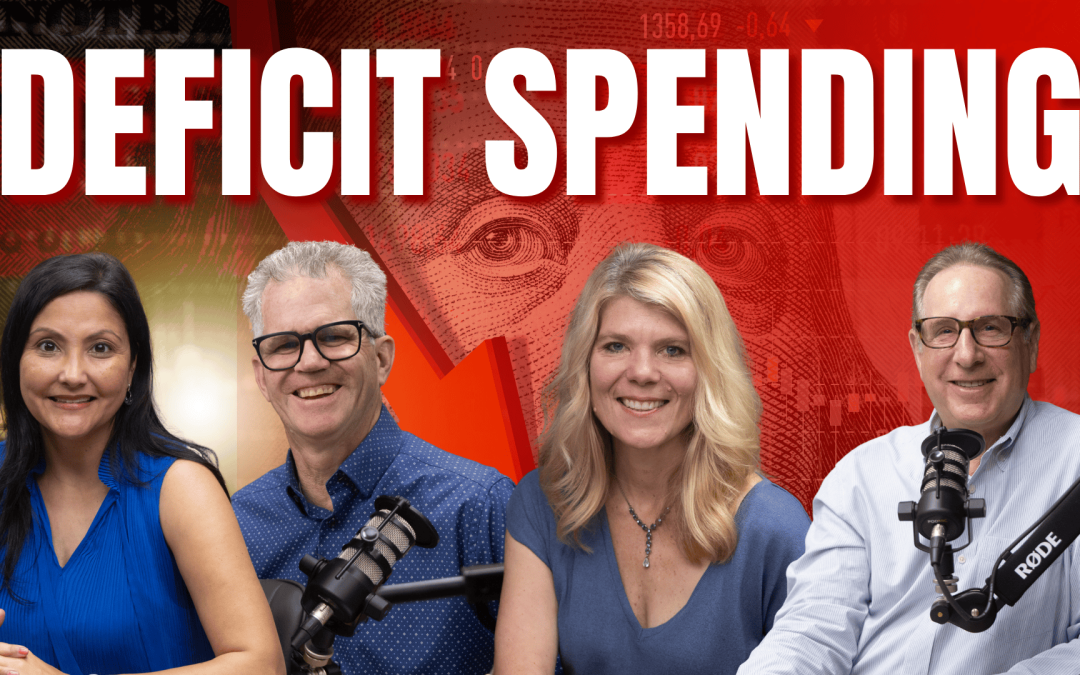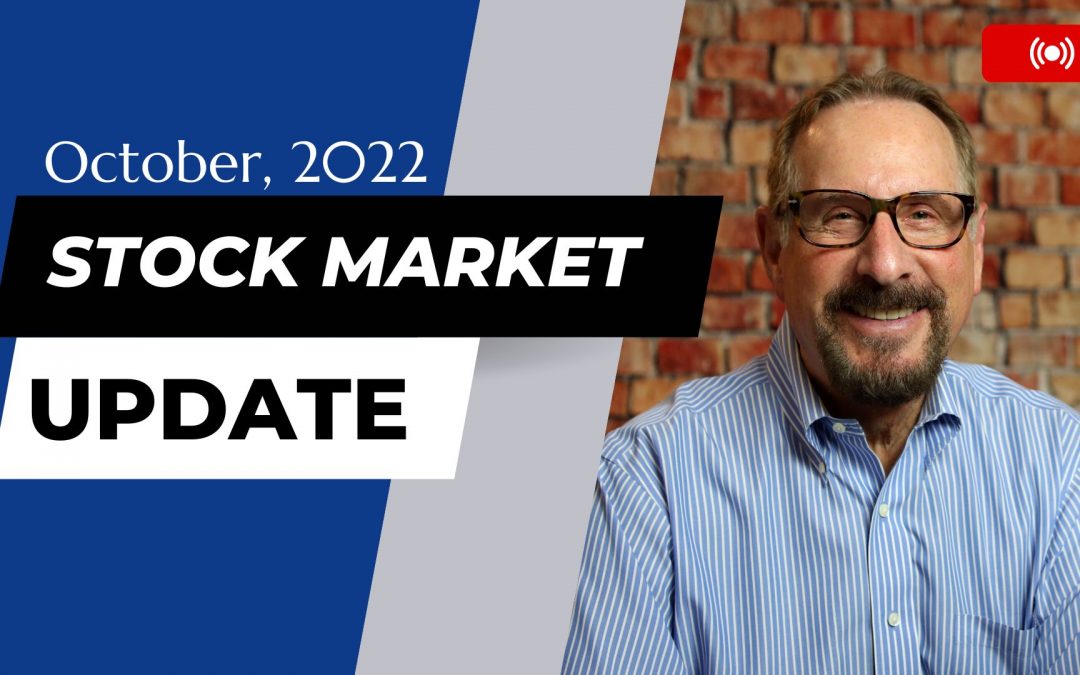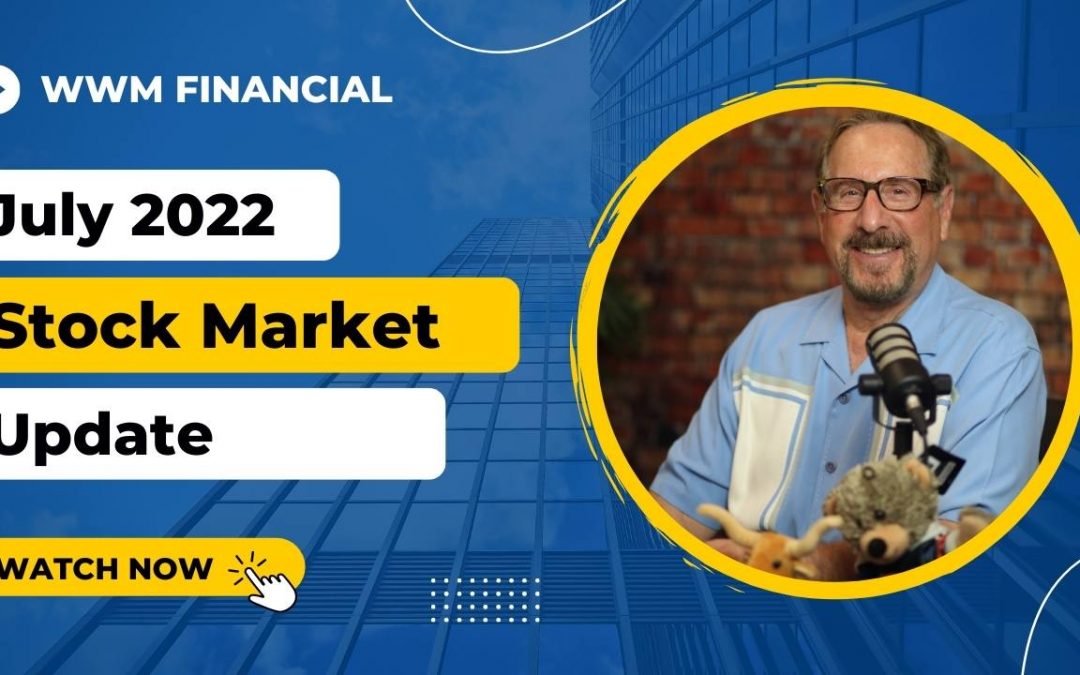
May 10, 2022
The last 4 months or so have been really tough on growth portfolios and now we’re seeing some weakness in the value stocks too.
This is a time when you really have to look at the stocks, bonds, funds, etc. in your portfolio and decide whether they are the ones with which you want to go to war.
In the months from mid-November 2021 to about mid-March, smaller companies’ stock prices came down precipitously. The larger companies were hanging in there, so the indices (i.e. the S&P 500, the Dow Jones Industrial Average and even the Nasdaq) didn’t look too bad.
In the last month or so, and especially the last couple of weeks, the weakness has started to hit the big stocks. Because the bigger stocks make up such a large portion of the major indices, we are seeing large point drops in those indices.
Since bonds have also gone down in price as interest rates have gone up, there really has been almost nowhere to hide.
Of course, this is the time in a market cycle that all of us get a little worried. After all no one wants to see their portfolio drop in value. However, it is not a time to panic.
Are there reasons to be nervous? Yes. Inflation is running at a very high rate, interest rates are quickly moving up, there is a war going on between Russia and Ukraine, and China is totally locking down its cities.
Every bear market has lots of reasons to be worried. This time is not different.
A Little History of Bear Markets
First, we need to realize that down markets are a normal part of investing. It is the price we pay in the short term for (hopefully) gains in the long term. In the short term there are myriad reasons why stocks go down. In the long term, the only thing that really matters is earnings.
In general, markets grow until they get too expensive. Then they pull back until they get too cheap. In a capitalist system, that’s the way it has always been and that’s the way it will always be. It’s basic supply and demand.
On average, the markets are down about once every 3.6 years, although that number is about once in every 5.4 years since the end of World War II according to an article by The Hartford Funds entitled, “10 Things You Should Know About Bear Markets.” Here’s the link: https://www.hartfordfunds.com/practice-management/client-conversations/bear-markets.html#:~:text=Bear%20markets%20are%20normal.,significantly%20over%20the%20long%20term.
It is not at all unusual that we see drops greater than 20 percent. That is the definition of a bear market (down 20% from peak to trough).
There have been 26 bear markets since 1928 according to the Hartford Funds article. It goes on to state that on average, stocks lose around 36% in a bear market.
Here are two statements we think are very important in this article: In the last 20 years, half of the S&P 500 Index’s strongest days have come during a bear market and 34% of the market’s best days have come in the first two months of a bull market, before it was clear that a bull market had begun.
The article states “…the best way to weather a downturn could be to stay invested since it’s difficult to time the market’s recovery.” That is a sentiment with which we wholeheartedly agree.
It’s also important to know that, according to the Hartford article, bear markets tend to be fairly short lived. The average bear market lasts about 9.6 months. Some go longer. For example, in 2000-2002 the bear market lasted 2.5 years according to an article in The Balance. https://www.thebalance.com/u-s-stock-bear-markets-and-their-subsequent-recoveries-2388520#citation-4
According to the Hartford article, there have been 26 bear markets (down markets) since 1928, but there have also been 27 bull markets (up markets) since 1928. In other words, every bear market has been followed by a bull market. And eventually the bull markets usually lead to new highs. There is no guarantee that this will happen again, as past performance is not a guarantee of future results, but as I have said on many occasions, I like those odds.
What To Do
First, here’s what NOT to do. Do not panic.
Here’s a quote from The Balance article noted above, “For investors who sold at the bottom of these markets, the lower stock prices had a detrimental effect. Those who stayed in long enough to experience a subsequent recovery were better off. Remaining focused on the long-term is important in the middle of a bear market.”
Second: If you are living off of the investments, try to make sure you have enough cash on hand to get through the downturn. That amount will be different for each investor.
Third: Bear markets create opportunities.
I like to say that we are in the only business that I am aware of that when everything goes on sale, everyone walks out of the store!!
A bear market gives investors a great opportunity to buy stocks at much lower valuations. The market we are in right now has taken many growth stocks down by a significant amount. If you deem that the baby got thrown out with the bathwater, and if you have cash, then this is an excellent time to consider buying those stocks where the company is still good, but the price has been discounted.
If you don’t have extra cash, it is still a good time to look at your portfolio and determine if the securities you own still make sense in the portfolio. If not, then cut back on those or sell them off and look to upgrade your portfolio.
For most of our clients, that is what we do for you.
Fourth: If you are contributing regularly to a 401-k or some other retirement plan, make sure you keep investing when the market is down. You might even consider upping the amount you invest every pay period if you can. You want to buy more shares at lower prices.
Lastly: This is the time to really see what your tolerance for volatility is all about. When the market is going up and your account is doing great, it’s easy to say that you can handle a bear market. But when the market is actually down by 20% or 30% or more, and your accounts have been hit, then you need to honestly evaluate your psyche. If you find that you are not sleeping at night or you just can’t handle it, then it is a good time to talk to us about possibly making some changes to your asset allocation.
Bottom line is don’t let your emotions get the best of you. Try to take advantage of lower prices. Most of all, be patient. Maybe this time it will be different, but history says that eventually down markets turn into up markets and you want to be in the game when it happens.
We know many of you are concerned, so please contact us to talk about what is going on in the markets.
Click here to book a free consultation.
Steve Wolff, Managing Partner, WWM Financial
WWM Financial is an SEC Registered Investment Advisor
The opinions expressed in this article are for general informational purposes only and are not intended to provide specific advice or recommendations for any individual or on any specific security. It is only intended to provide education about the financial industry. To determine which investments may be appropriate for you, consult your financial advisor prior to investing. Any past performance discussed during this program is no guarantee of future results. Any indices referenced for comparison are unmanaged and cannot be invested into directly. As always please remember investing involves risk and possible loss of principal capital; please seek advice from a licensed professional.












